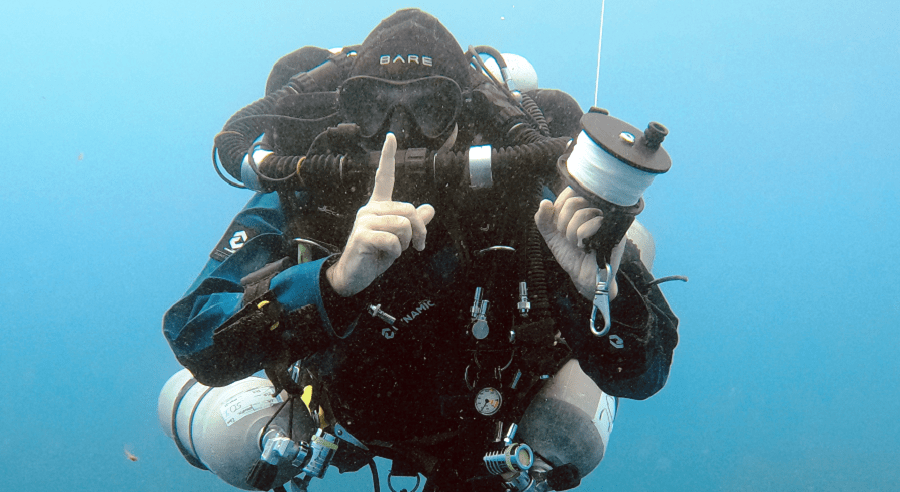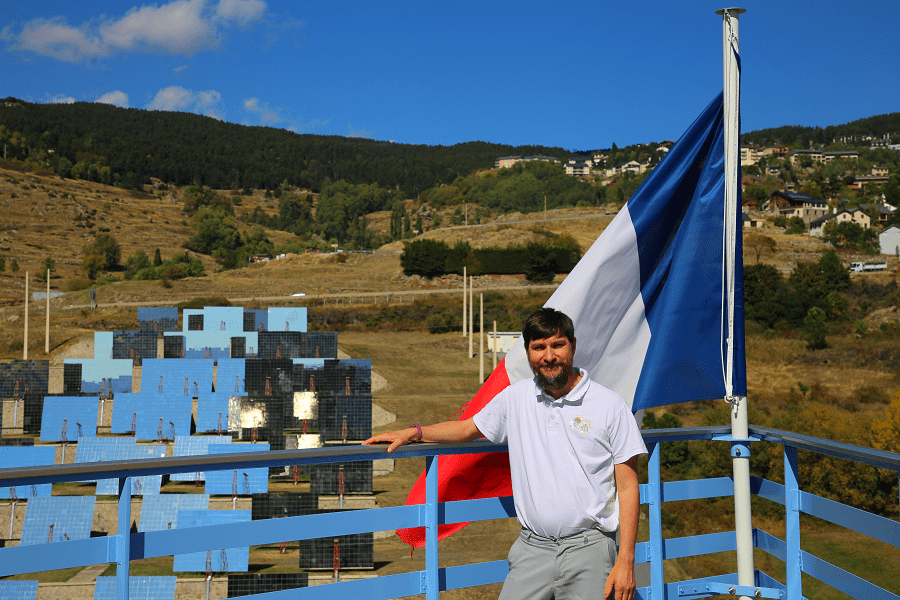Marc Vidal is one of the most influential figures in the Digital Economy in Spain. Known for his revolutionary method for dramatic sales increase and making unknown brands relevant through technological understanding. He is a specialist in Digital Transformation and Industry 4.0. He has become a prestigious speaker, awarded with the Top50 World’s Economic Speakers, Top10 of Inspirational European Voices, and recently named “TOP20 LinkedIn influencer” by Entrepreneur Magazine, and awarded with TopVoices LinkedIn 2019.
His excellent communication is based on a complete vision of the economy that has strengthened with his experience. His techniques include the use of experience, visualization of concepts through storytelling, stimulation of creativity and creation of atmosphere through multimedia that combine images and sounds, among others. Through captivating and quick-witted speeches, Vidal invites an audience to recognize and respond to challenges.
As an international consultant, his clients include Oracle, ABB, Microsoft, IBM, Allianz, Deloitte, Everis, PWC, Ricoh, Kone or BBVA. In his role of broadcaster he has presented and directed programs on economics and technology such as on TVE “Pocket Economics” and “Economy of the Future”, on Atresmedia “Liarla Pardo” or “Arusitys” and others on Bloomberg, NTN24 Colombia, CNN and the “Good Morning Europe” program on Euronews NBC.
Marc Vidal was one of the analysts who predicted the economic crisis. In 2006 he wrote about what happened years later, but with a view of historical opportunity rather than with alarmism. For this and other reasons, his blog won the 3rd prize of the EuroBlogs Awards for the best blog in Europe and one of the distinctions for the best blog in Spain. The prestigious economic newspaper Expansión selected Marc as one of the indispensable analysts in the field of the new economy.
He publishes his books with the Planeta publishing house. The most popular ones include Contra la cultura de Subsidio (Against the Culture of Subsidy), or the bestseller translated into a dozen languages Una hormiga en Paris (An Ant in Paris) which was selected as one of the ten essential books by Forbes Magazine at its launch. His latest book, La Era de la Humanidad (The Age of Humanity) has already become a new bestseller just months after its publication.
Despite being a business school teacher and technology investor, his true vocation is to help companies and institutions make technological changes that will enable them to identify the opportunities that digital transformation offers to those who use his method “Disrupt Thinking” to generate new business models, a method that has been successfully implemented in hundreds of companies. He combines work in all these areas with the leadership of his consulting firm Allrework, being an advisor to d-LAB at Mobile World Capital, a counsellor at the main Spanish digital business accelerator Connector, an economic analyst at Atresmedia television platform and being a member of the LEAP (European Laboratory of Political Anticipation).
He previously founded the digital consultancy Cink, which was later acquired by the multinational Llorente and Conca. He also created and directed the Postgraduate Degree in Digital Strategy in Networks for the IL3 at the University of Barcelona. He was a member of the New Economy Research Group of the Polytechnic University of Madrid and the first director of the Westinghouse New Economy magazine.
Psychohistory is a fictional science in the Isaac Asimov “Foundation” novel series, which used mathematical methods to study the processes of society, and thus, predicted the future with a high degree of accuracy. In modern science, this concept is defined as cliodynamics: an interdisciplinary field of research focused on the mathematical modelling of socio-historical processes. Is it possible to predict the future development of civilization, given the current level of the digital society?
I believe more in deduction than in prediction. In my latest book, The Age of Humanity, I do an exercise in cliodynamics when I explain how I interpret this future in a digital society. In fact, at the end of the book, I provide a “bonus track” which is a short story that I imagine happens in 2050. I will not tell you what happens, but I can tell you that brain images will soon revolutionize our teaching methods. Futurists claim that schools will no longer teach children how to read and write. Brain-computer interfaces will make these skills obsolete and useless. And, let me play Jules Verne. By 2050 we will have a direct, instantaneous link between the network and our brain. As a result, memory will be irrelevant.
The dangers of digitization and digital hygiene. What do you think about the view that the digital economy produces nothing and is a totalitarian management tool?
This has been the case with every technological revolution. There are those who think that everything is reviewable but in my experience, with more than a hundred companies in the process of transformation, from banking to the automotive sector through retail or real estate and the construction among others, the digital economy works when its leaders really understand the intense relationship between understanding technology and organizational change. The success came when, following the official speeches, they focused on both areas. Those who focused only on changing the mentality of their members and the culture of the organization either failed or took a long time to set their goals. Those who focused only on technology without at the same time engaging in the cultural change also had serious problems. The full potential was achieved in those projects where technology was given a “driver” value while designing processes and changing culture, that’s when you see the true economic value of changing everything towards digitalization.
Is there any conflict between artificial and human intelligence in the face of the new digitalization of society and the economy?
There are countries, where governments, unions and employers’ associations, are discussing and analysing the inevitable repercussions of artificial intelligence on our lives. Some are taking the lead because they have come to understand the benefits of embracing the inevitable and imminent change. For example, in 2018, institutions, universities and companies in Finland spurred on the creation of a project called Element of AI, a course in artificial intelligence for people without prior training in the field, that offers free certification. To date, more than 2% of Finns have taken the course. The aim of this initiative is to provide the largest number of citizens with the opportunity to acquire new skills to work in environments where artificial intelligence is occupying more and more relevant space. However, we must remember that it needs to be combined well. Humans will always be the added value, but efficiency will not be easy to compete with. The immediate future is the battlefield. Everything that software is not capable of doing will be invaluable. Surely, the human factor will have to be this differential element. Humans will never solve a Rubik’s cube as fast as a robot, but we will figure out how to express the result in an emotional, creative and engaging way. It is not clear whether this combination is being understood.
Can the digitization of society and economy lead to the emergence of many pseudosciences? Can you enumerate modern pseudosciences and give us your viewpoint?
I don’t believe in them. I think that technology is precisely discovering that science is only science when it is science.
How do you predict the development of Internet privacy technologies in the face of the advent of decentralized autonomous companies?
It’s a complicated topic. To help you understand my opinion, I will give you an example. New technologies, including assistive technologies, which monitor and collect data about the person are a threat to privacy in this regard. But it is not the only zone of conflict. It happens in digital commerce, sexuality, transportation, education, or life in general. We are data sprinklers, sharing data about ourselves without much control. We have a feeling that no one is using this whole compilation of data, and even if someone is that it is not harmful. This payment begins to be accepted. I give away my privacy and in exchange, I get things “free.” This perception of the world has settled and is a huge risk. Privacy is synonymous with an autonomy of independent decision-making, not influenced externally. These companies you comment on will not be a problem themselves, but they will need to have a different regulation. It will be similar to talking about people instead of companies. The self-contained individuals analyse, reflect on their choices and make independent decisions without undue external influence. As new technologies eliminate privacy, our autonomy is threatened. Increasing data on how individuals behave, their preferences and aversions, and their emotional responses to various stimuli make it easier to manipulate and control them.
What is human capital in your view? The American economist Jacob Mincer first used the term in 1958. How has this concept evolved over all this time, and what is happening with it, given the digitization of society in 2020?
I’m not an expert on change management or human resources, but there are people in my company who know a lot about it and they tell me that given the changes that digital transformation is provoking, in all types of organizations, human capital must be derived from behavioural skills, such as the ability to work well as a team, communication, creativity and empathy, “skills” that are best developed through experience rather than structured learning programs. Anyway, I find it rather curious to call these new skills. These skills are very human, so it’s more about emulating them than creating them. For this reason, I find it difficult to talk about ‘new’ abilities and prefer to talk about “technologically” more human beings. In the future, the most valuable companies will be those that best combine technology with these skills.
Why do you think 2019 was the best year for humankind and what are your predictions for 2020-2030?
When my parents were born, almost in the 1950s, the majority of the world’s population had been illiterate and living in extreme poverty. By the time I die, according to the current life expectancy in Spain or Andorra, illiteracy and extreme poverty will have been eradicated. It is difficult to imagine a greater triumph for humanity than this comparative that affects only two generations. According to The New York Times article ‘This Has Been the Best Year Ever’, every day of 2019, 325,000 people got access to electricity for the first time, over 200,000 got access to running water for the first time and about 650,000 connected to the internet also for the first time. In the decade that has just begun, we will see more innovation than ever in human history. The use of technologies that we now consider distant will be normalized.
When will the printed newspapers and non-glossy magazines cease to exist?
Soon.
Modern social networks are constantly changing. But at the same time, they continue to have only one purpose: advertising, because of which many reject it. Will social media die in the future, or will something replace them, or in what way will they change?
Social networks are currently more valuable for the data they contain than for the advertising they are capable of delivering.
What has been your attitude to science fiction and what role has it played in shaping the technological structure and industrial revolutions throughout history, and today, in 2020?
By the age of 10, I was already spending all the pocket money my parents gave me on science fiction books. Any change that was left I spent on candies that I then enjoyed while reading. (Laughs). I still find science fiction interesting when it’s more science than fiction. Some time ago “fantasy” science fiction literature was written which didn’t include theories that could be explained. Today, we have films and books that make every effort to prove that what they are saying may happen eventually. Watch ‘Interstellar’, for example. It speaks of time-space curves, of connected dimensions, of multiverses. We do not know how to make all this, but Einstein’s theories of relativity say that it is possible. I think human beings use their imagination to define how far we can go. If this “fantasy” is based on realistic future technical criteria, then science fiction becomes interesting.
Who are your favourite sci-fi writers and filmmakers today, and why?
I really like science fiction as I said before, but I also enjoy reading philosophy and poetry. Hence my favourite writers are the novelists Ray Bradbury, especially for “The Martian Chronicles” and Arthur C. Clarke, in particular the novel he wrote in 1951 called ‘Prelude to Space’, a true gem. I am interested in the writings and essays of MIT professor of economic philosophy, Peter Temin, about what economics was like in some moments of distant history, and how it affected the advent of new technologies then. However, I do not remember enjoying any book in my life more than “Solaris” by Stanisław Lem. This work had been filmed three times. In 1968 by Nikolai Nirenburg, in 1972 by Andrei Tarkovsky and in 2002 by my favourite filmmaker, Steven Soderbergh.
Interview: Ivan Stepanyan, Irina Rybalchenko











